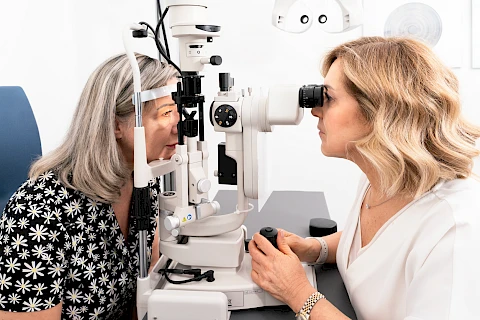
Night vision is an important aspect of our overall vision. As we age, we might start experiencing difficulties with tasks that were once easy, like driving at night or moving around the house in low light. These challenges can be frustrating, but they are quite common. By understanding the causes and taking simple steps, seniors and their caregivers can make night vision management easier.
Understanding Age-Related Night Vision Changes
Aging affects night vision in several ways. It's not uncommon for older adults to notice a gradual decline. You might struggle to see in dim light or have difficulty adjusting to changes in lighting conditions. Common symptoms include halos around lights, increased glare, and difficulty distinguishing between shades of dark colors. Medical conditions such as cataracts, glaucoma, and macular degeneration can worsen night vision issues. Understanding these changes can help in managing them more effectively.
Causes of Night Vision Changes
The primary cause of night vision changes is the natural aging process. As we get older, several changes occur in our eyes:
- Decreased pupil size, which makes it harder to take in light.
- The iris, the part of the eye that controls the amount of light entering, becomes less responsive.
- There are fewer rod cells in the retina. Rod cells are responsible for vision in low-light conditions.
These changes make it more difficult for seniors to see clearly in low light, adapt to darkness, and perceive depth and contrast.
Practical Tips for Coping with Night Vision Changes
You can take several steps to manage changes in your night vision more effectively.
- Use brighter and more focused lighting at home. Consider LED lights, which provide better illumination.
- Install motion-sensor lights in hallways and bathrooms to prevent tripping.
- Allow your eyes time to adjust to changes in light. When moving from a brightly lit area to a darker one, pause to let your vision adapt.
- Avoid driving at night or in low-light conditions if possible. If you have to drive, limit it to well-lit roads.
Consult your eye care provider for more suggestions specific to your needs.
The Importance of Regular Eye Check-Ups
Routine eye exams are vital for maintaining good vision, especially as we age. Regular check-ups can help detect and manage night vision problems early on. They can identify medical conditions like cataracts or glaucoma that may affect night vision. Updating your glasses or contact lens prescription can greatly improve your night vision. Updating your glasses or contact lens prescription can greatly improve your night vision.
Scheduling regular visits to the eye doctor ensures that any changes in your vision are monitored and you receive the appropriate treatment or adjustments.
Additional Strategies for Better Night Vision
Some tools can help improve night vision if you have minor vision problems. Wearing anti-reflective lenses can reduce glare from headlights and streetlights while driving. Vision aids like magnifiers and special lenses designed for low-light conditions can improve your ability to read or handle detailed tasks.
Help for Seniors with Declining Vision
Night vision changes can be a hurdle, but there are many ways to manage them effectively. Understanding the causes and taking practical steps—like using better lighting, allowing your eyes to adjust, and having regular eye exams—can improve your night vision. If night vision issues persist, it's essential to seek professional help. If you need more help at home due to declining vision, the team at Senior Helpers Fairfax is ready to provide personalized assistance and support. They serve Alexandria, Arlington, Centreville, Reston, and Vienna. Reach out today to learn more about how we can help.